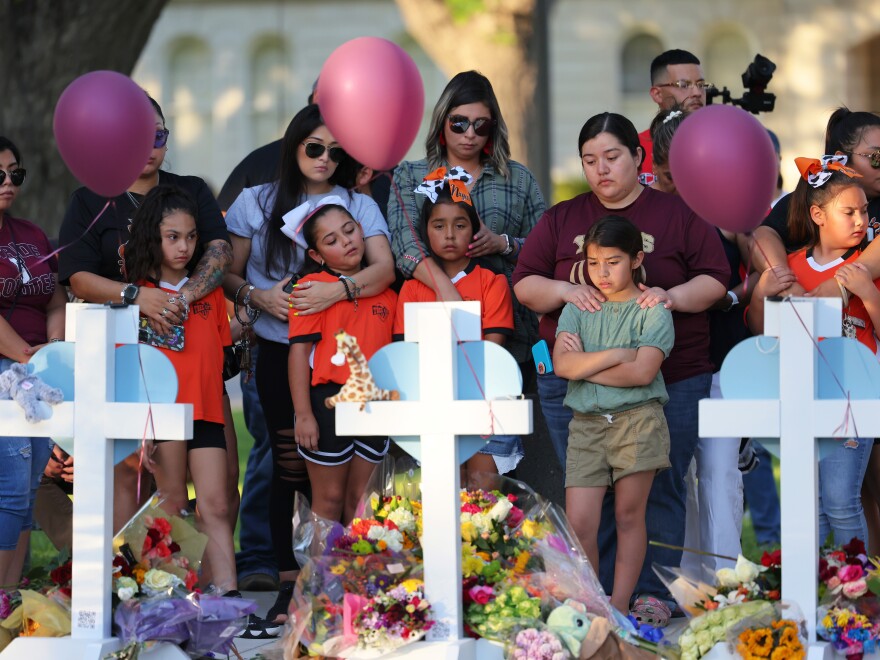What is the role of journalists when covering America's mass shooting crisis, and how can they responsibly report on tragedies like the recent shootings in Uvalde, Buffalo and Tulsa?
Those are complicated but crucial questions to answer, says Dannagal Young, a University of Delaware professor who studies the impact that news stories have on the public.
In particular, her research looks at whether the media has a bias in favor of covering specific events and individual people, instead of looking more broadly at what leads to tragedies such as mass shootings.
This difference is called episodically framed stories versus thematically framed stories.
Young unpacks why this matters, how the media should cover mass shootings, and the one question she says journalists should ask themselves.
This interview has been edited for length and clarity.
Interview highlights
On episodically vs. thematically framed news stories
There was work that came out in the early '90s looking at whether or not the way that news stories are told could affect the kind of attributions of responsibility that viewers or readers might make. So, if you tell a news story about individual people, individual problems, really following that story narrative arc, is it possible that you're actually going to encourage those readers and listeners to attribute responsibility and look for solutions at the level of the individual in the story?

On whether the Uvalde shooting was covered more episodically or more thematically
I think it depends on what outlets we're talking about. I have seen a whole lot of attention paid to more thematically framed coverage that looks at the history of gun control in the United States, rates of gun violence broken out by state, etc. Those thematically framed stories contextualize what happened in Texas within a broader framework — a political framework, a cultural framework, a historical framework. That's thematic.
However, as the story began to unfold, and we did learn about failures at the level of the Uvalde Police and the school police in particular, some of those stories really began to focus on the individual people, as opposed to thinking more broadly about gun violence as an epidemic in the United States.
On how people understand news differently when it's more episodic and less thematic
When a story is told in terms of individual people, our brains are going to be activating constructs about this person in this place at this time. And we're naturally going to want to also protect ourselves and say, "Well, this awful thing wouldn't happen to me, because look it happened over there to those people in this place." And we're going to extrapolate from that and say, "If I don't do these things, I'm not in this place, and I'm not those people, this will not happen to me."
As opposed to when covered more thematically, broadly, in terms of systemic factors that may contribute to this trend, that is going to encourage people to think: What could the system do? What kind of legislation might be passed to address this issue?

On the question all journalists should ask themselves
The question that I wish that all journalists would always ask themselves is: What is going to help Americans understand not just this day, but this broader issue? What is going to help them figure out what action they might be able to take? What legislation might be able to come about? Those are the questions that need to be asked.
On whether she thinks journalists can do this without sounding like advocates in an inappropriate way
I do. Because it sounds as though I'm just talking about how we need to all talk about gun legislation and gun reform. But there are also conversations that need to be had about how we deal with mental health issues in this country, and how we deal with extremist groups in this country. Those are all conversations that would help Americans get closer to an understanding not just of the event, but of the broader issues underlying the event.
Copyright 2022 NPR. To see more, visit https://www.npr.org.






